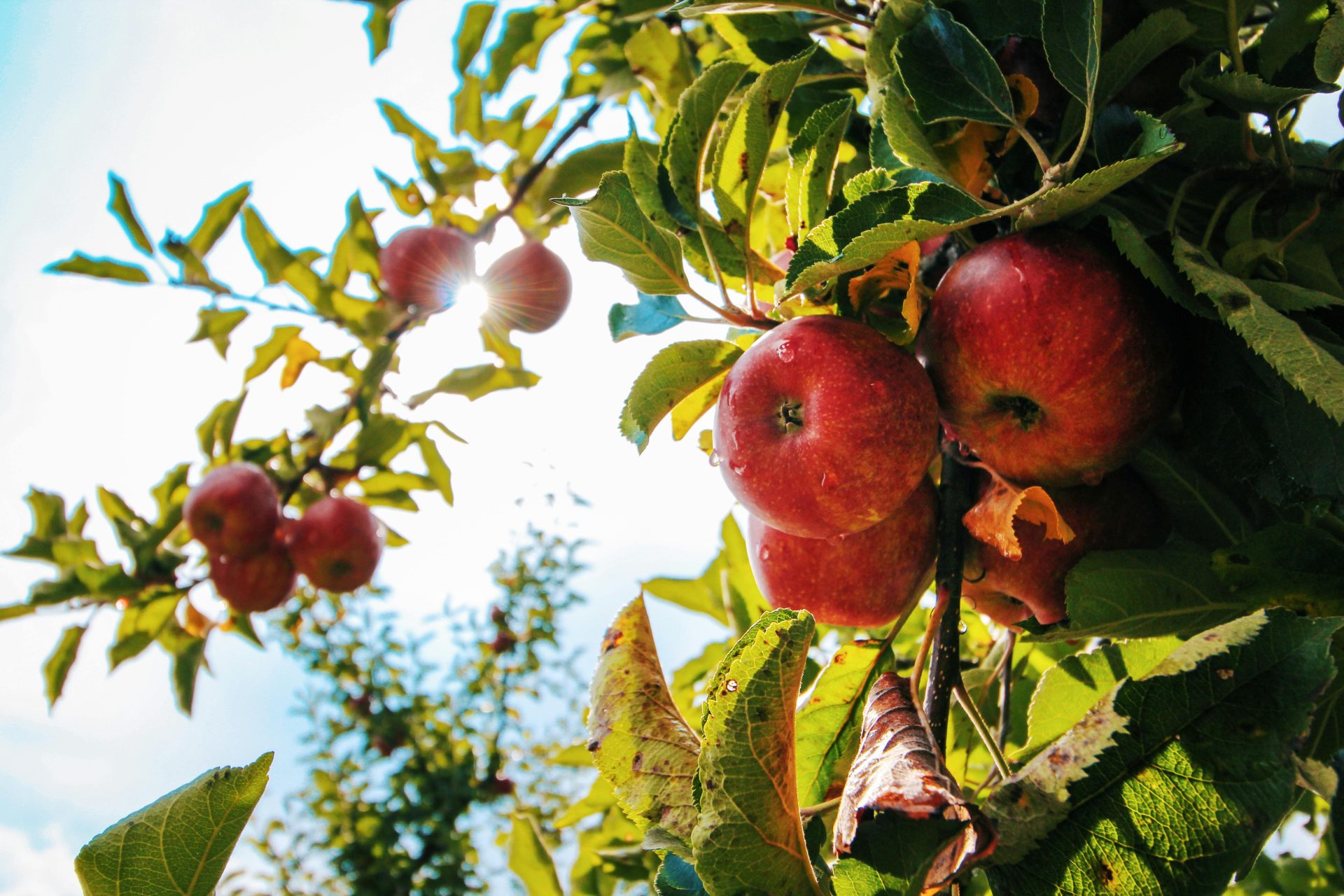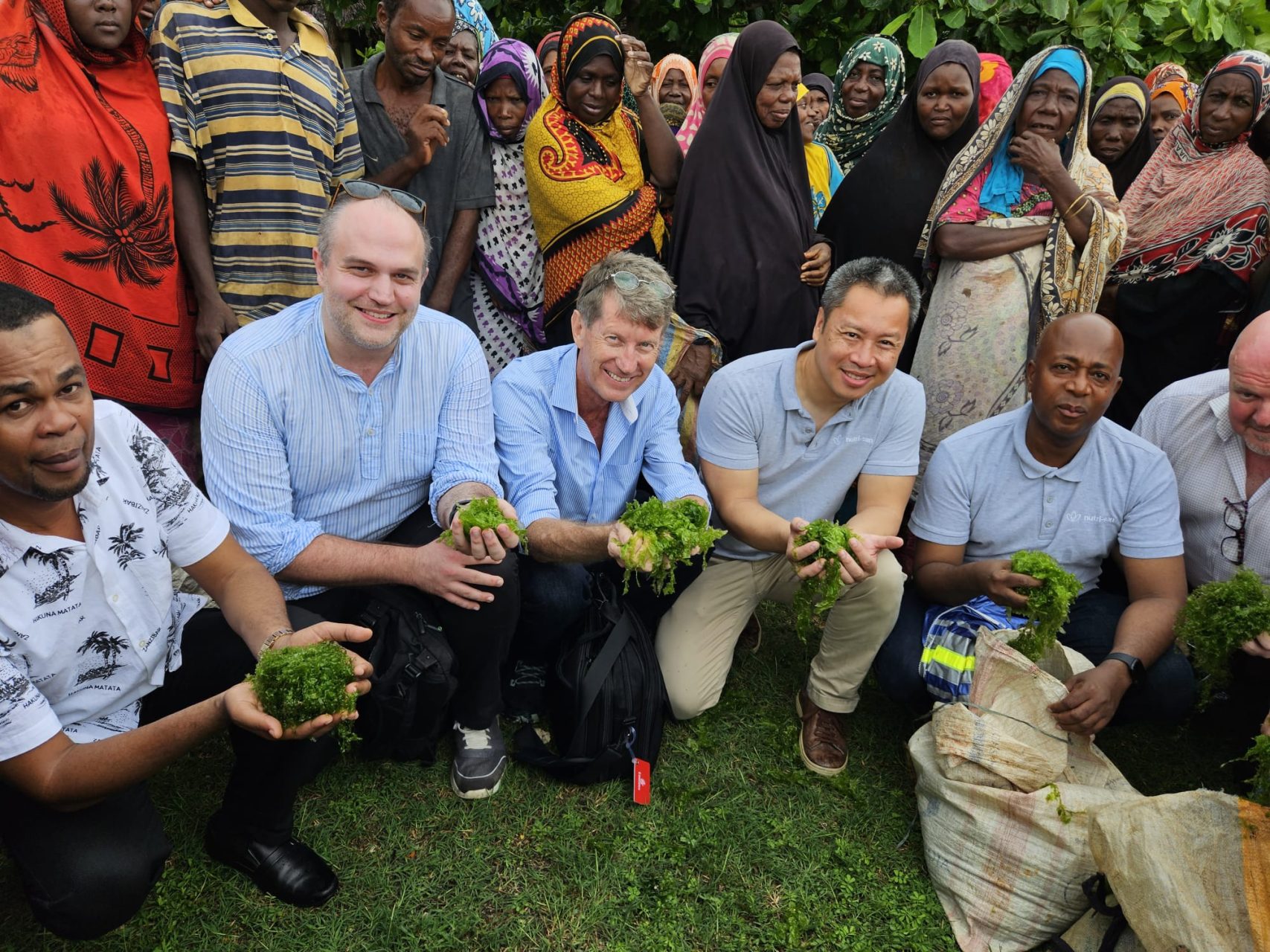As a Right to Food university, Kent is committed to supporting food systems that advance human health and environmental sustainability in society. This starts with Kent research. Our research community is collaborating with local growers, producers, policymakers and wider industry to achieve real change with global impact, and has partnered with Growing Kent and Medway to support horticultural and plant-based food and drink businesses through our Biotechnology Hub. Together, we’re making our food systems more:
Sustainable
It’s widely accepted that we need to reduce waste to limit our impact on the environment – but doing so often isn’t financially or practically viable. To tackle this, Kent researchers are working with local producers to find commercially viable ways to shift towards a more circular economy. For instance, Senior Lecturer in Chemistry and Forensic Science, Dr Rob Barker and Reader in Molecular and Evolutionary Parasitology, Dr Anastasios Tsaousis, are bringing the ancient technology, biochar, to the 21st Century, in collaboration with Re-Generation Earth, with the ambitions to turn farm waste into a carbon-locking soil fertiliser.
Another issue Dr Barker is helping to address is the economically and environmentally unsustainable import of two million tonnes of soymeal for animal feed into the UK each year. How? By optimising the use of black solider fly larvae as an alternative animal feed. By feeding excess and spoilt fruit and veg to the larvae, producers can cut their waste and upcycle it into a more valuable source of protein that can be used as low carbon feed for animals and create a ‘waste’ product which acts as a bio stimulant for crops.
Meanwhile, in another lab in Kent’s School of Biosciences, Industry Research Fellow in Agri-Biotechnology, Dr Lori Fisher has been working with Sharpak Aylesham to reduce packaging waste. She conducted tests which informed the development of a recyclable punnet that maintains and extends the quality of raspberries, without the need for the plastic pad that traditionally keeps fruit fresh. This has the potential to reduce plastic waste by 3.6 meters squared a year!
Equitable
In the UK, the costs of ill-health, disease and obesity associated with UK dietary habits are enormous, yet a large portion of society don’t follow the UK dietary guidelines for healthy eating. To tackle this, Head of the School of Social Policy, Sociology and Social Research, Professor Iain Wilkinson, is working with researchers at the University of Reading to develop a blueprint for a set of policy interventions to support more people to transition to healthy and sustainable diets in the UK. Professor Wilkinson will contribute to the project by designing, delivering and analysing the outcomes of an experiment which examines what people put in their supermarket food baskets from a dietary health and sustainability perspective.
Nutrition is also a major concern amongst older adults in home care, where diet is often not a matter of choice but what is made available. Malnutrition and dehydration are leading causes of preventable illness and deterioration of quality of life for older adults, and major drivers of health inequalities. Dr Stacey Rand, Senior Research Fellow in the Personal Social Services Research Unit, has been examining this relationship to inform how social care services meet the needs of older adults living at home.
Nutritious
Responding to growing consumer demand for healthy food, local producers are working with Kent researchers to better understand the nutritional content of their products and identify new market opportunities. Dr Lori Fisher, for instance, has worked with J L Baxter & Son to explore the bioactive and nutrient compounds in the Asian pear (Nashi pear) to understand its health benefits and market potential.
Another project funded by Growing Kent and Medway saw Rent a Cherry Tree partner with Senior Lecturer in the Biology of Ageing, Dr Marina Escurra, and Reader in Biogerontology, Dr Jennifer Tullet, from the School of Biosciences to determine the health benefits of their cherry products -including those formerly considered ‘waste’- and identify new ways to market them. The research team are now working with wine-makers, Defined Wine, to explore whether the waste from the wine-making industry can also be used to create new foods that improve health.
Enjoyable
Dairy production is one of the biggest methane emitters in the world. As a result, many people have switched to plant-based alternatives, leading to a huge growth in demand for plant-based milk, but less so for animal-free alternatives to cheese. One reason for this is that alternative protein companies are not able to offer affordable and scalable solutions to casein -the main cheese protein- production, limiting their ability to mimic dairy taste and textures. Professor of Systems Biology, Tobias Von Der Haar, and Professor in Fungal Epigenetics, Alessia Buscaino, are working to solve this by taking unconventional microbial species which are naturally more suitable for food production and genetically modifying them with the aim of producing casein in high quantities. This could give rise to better tasting, more affordable plant-based cheese.
Resilient
Climate change, disease and invasive species are all putting UK crops under stress. Combine this with more stringent environmental regulations and the introduction of sustainable farming incentives, and it becomes clear why food-related businesses are increasingly looking to collaborate with researchers to develop new technologies. One such researcher is Professor of Agri-Environmental Economics in the School of Economics, Iain Fraser, who is joining a world-class consortium of partners, led by agronomist Rob Saunders from H.L. Hutchinsons, to develop a commercially viable system which can precisely target orchard inputs to specific trees, or parts of a tree. Specifically, Iain will evaluate the difference between existing technology and new technology, which includes robots, drones and innovative chemical spraying systems.
Researchers in Kent Business School are taking a wider view of the food supply chain to identify opportunities to improve resilience. In 2022, Professor Maria Paola Scaparra worked with Professor Kathy Kotiadis, Professor Jesse O’Hanley and partner universities to increase the use of operational research in food supply security planning in South East Asia. Meanwhile, Lecturer in Marketing, Dr Rachel Duffy, has been examining the behavioural dimensions of supply chain relationships in the food industry, in particular, their implications for performance.


